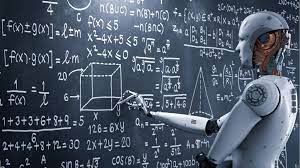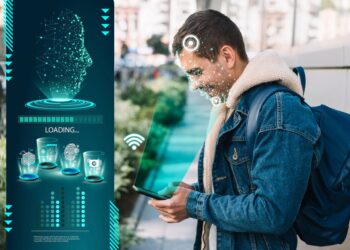Revolutionizing Education: The Benefits of AI in the Education Industry
Artificial intelligence (AI) has brought about a significant transformation in various industries, and the education industry is no exception. AI has revolutionized the way we teach and learn, providing new opportunities for students, teachers, and educational institutions. In this article, we will explore the benefits of AI in the education industry and how it is changing the future of education.
AI in Personalized Learning
One of the significant benefits of AI in the education industry is personalized learning. AI-powered learning platforms, such as Carnegie Learning and Knewton, can analyze student data and provide personalized learning experiences based on their learning needs, preferences, and strengths. This helps students to learn at their own pace, providing them with a customized learning experience.
Moreover, AI can be used to create personalized learning materials, such as quizzes, assignments, and tests. These materials can be tailored to meet the needs of individual students, ensuring that they are challenged and engaged in their learning.
AI in Student Assessment
AI can also be used to assess student performance and provide feedback in real-time. AI-powered assessment tools, such as Grade scope and Turnitin, can analyze student work and provide instant feedback on their performance, helping them to improve their skills and knowledge.
Moreover, AI can be used to identify students who are at risk of falling behind and provide targeted interventions to support their learning. This helps to ensure that every student has an equal opportunity to succeed in their education.

AI in Curriculum Development
AI can also be used to develop and optimize the curriculum. AI can analyze student data and identify areas of weakness and strength in the curriculum, helping educators to modify and improve the curriculum to meet the needs of their students.
Moreover, AI can be used to identify emerging trends and changes in the job market, helping educators to prepare students for future job opportunities. This ensures that students have the skills and knowledge necessary to succeed in the workforce.
Benefits of AI in the Education Industry
The integration of AI technologies in the education industry provides several benefits for students, teachers, and educational institutions. Some of the key benefits include:
Personalized Learning: AI can provide personalized learning experiences for students based on their learning needs, preferences, and strengths, providing a customized learning experience.
Real-Time Feedback: AI can provide instant feedback on student work, helping them to improve their skills and knowledge.
Targeted Interventions: AI can identify students who are at risk of falling behind and provide targeted interventions to support their learning.
Curriculum Development: AI can analyze student data and identify areas of weakness and strength in the curriculum, helping educators to modify and improve the curriculum to meet the needs of their students.
Future-Proofing: AI can identify emerging trends and changes in the job market, helping educators to prepare students for future job opportunities.
Conclusion
The integration of AI technologies in the education industry has brought several benefits and opportunities for students, teachers, and educational institutions alike. AI has revolutionized the way we teach and learn, providing new avenues for personalized learning, real-time feedback, targeted interventions, curriculum development, and future-proofing.
As we move forward, it is essential to ensure that we use AI responsibly and ethically in the education industry. This can be achieved through the development of ethical guidelines and regulations for the use of AI in education, as well as through increased transparency and accountability in the development and deployment of AI technologies.
The integration of AI technologies in the education industry is a game-changer, providing new and exciting opportunities for all those involved. The education industry will continue to evolve and transform with the help of AI, providing us with new and innovative ways to teach and learn. As we move forward, it is essential to ensure that we use AI responsibly and ethically to uphold social and ethical values while harnessing the power of AI to revolutionize the education industry.
However, there are also concerns about the use of AI in education. Some argue that the use of AI-powered learning platforms can lead to a depersonalization of education, reducing the role of teachers in the learning process. Moreover, the use of AI in student assessment raises concerns about the potential bias and inaccuracies in AI algorithms.
To address these concerns, it is essential to ensure that AI technologies are used responsibly and ethically in education. This can be achieved through the development of ethical guidelines and regulations for the use of AI in education, as well as through increased transparency and accountability in the development and deployment of AI technologies.
In addition, it is crucial to recognize that AI is not a replacement for teachers but rather a tool to support them in their teaching. AI can provide teachers with insights into student performance and learning needs, helping them to develop more effective teaching strategies and interventions. Moreover, AI can help teachers to save time and effort in grading and assessment, allowing them to focus on more personalized instruction and support.

The integration of AI technologies in the education industry has brought several benefits and opportunities for students, teachers, and educational institutions. AI has revolutionized the way we teach and learn, providing new avenues for personalized learning, real-time feedback, targeted interventions, curriculum development, and future-proofing. However, it is crucial to ensure that AI technologies are used responsibly and ethically to address concerns about the depersonalization of education and potential bias in AI algorithms. By doing so, we can harness the power of AI to revolutionize the education industry while upholding social and ethical values.
Furthermore, AI technologies have the potential to bridge the gap in education access and equity. AI-powered learning platforms can provide access to education for students in remote or underserved areas, who might not have access to traditional educational resources. Moreover, AI-powered translation tools can help students who speak different languages to communicate and learn from each other, promoting cultural diversity and global citizenship.
In addition, AI can provide opportunities for lifelong learning and upskilling. AI-powered learning platforms can provide personalized learning experiences for individuals throughout their lives, helping them to acquire new skills and knowledge to adapt to the changing demands of the workforce.
The integration of AI technologies in education is still in its early stages, and we can expect to see more advancements and innovation in the future. For instance, AI can be used to develop intelligent tutoring systems that can provide personalized feedback and support for students in real-time. Moreover, AI can be used to create virtual learning environments that simulate real-world scenarios, providing students with hands-on learning experiences.
The integration of AI technologies in the education industry has brought several benefits and opportunities for students, teachers, and educational institutions. AI has the potential to revolutionize the way we teach and learn, providing new avenues for personalized learning, real-time feedback, targeted interventions, curriculum development, future-proofing, access and equity, and lifelong learning. As we move forward, it is essential to ensure that we use AI responsibly and ethically to address concerns about the depersonalization of education and potential bias in AI algorithms. By doing so, we can harness the power of AI to revolutionize the education industry while upholding social and ethical values.















